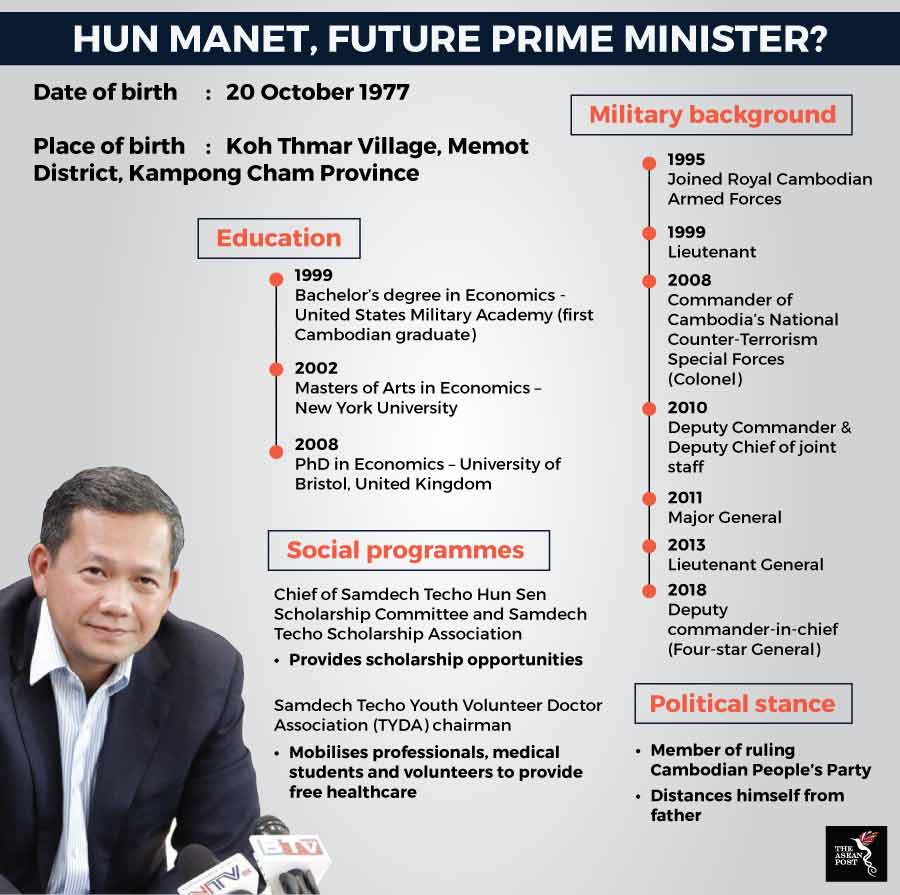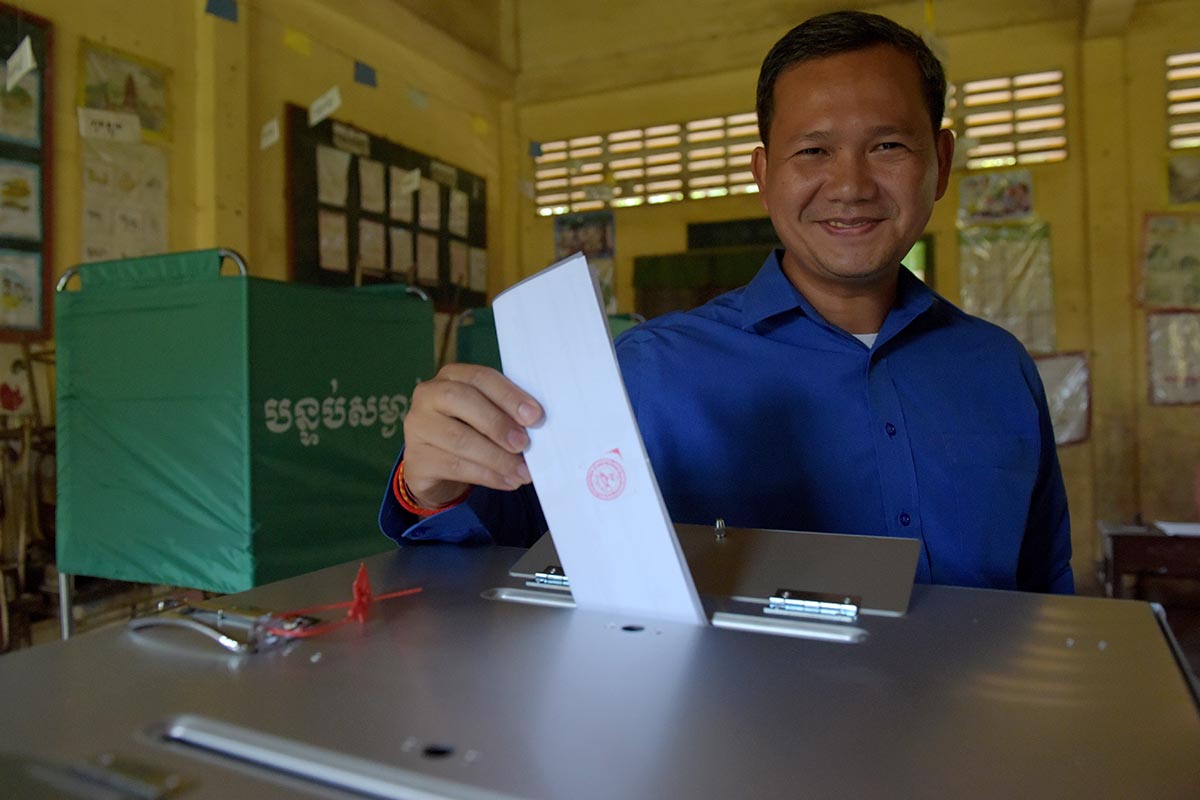Political science recognises a phenomenon known as family dictatorship in which – as its name suggests - political power passes within the dictator’s family. Although reminiscent of medieval times where kings, sultans and pharaohs based their authority on divine right, family dictatorship is not naturally required by law. In some cases, a special law might be enacted to formally nominate one particular family member of the present leader as successor. In other cases, the state may even have elections, but control exerted by the leader on the political and electoral process ensures a hereditary succession. Coincidentally, one ASEAN member state which has been under international pressure recently for allegedly having its elections rigged is Cambodia.
Prime Minister Hun Sen, in a recent interview with Japanese news agency Kyodo, publicly suggested that his eldest son, Hun Manet, could succeed him as leader of Cambodia. Hun Sen reportedly said Manet would be a “possible future leader” of the Kingdom.
Combine Hun Sen’s statement with information on his sons and there is cause for concern.
Manet himself is currently serving as Commander of the Royal Cambodian Army after he was appointed last month. Hun Sen’s second son, Hun Manith, is the director-general of military intelligence. Hun Many, his youngest son, is chairman of the National Assembly’s commission for education and culture, and also leads the Union of Youth Federation of Cambodia, one of the country’s largest pro-government youth organizations. Clearly, nepotism isn’t a stranger in Hun Sen’s Cambodia.

Source: Various sources
The makings of a successor?
In June, Human Rights Watch (HRW) published its “Cambodia’s Dirty Dozen: A Long History of Rights Abuses by Hun Sen’s Generals”. Manet, being relatively new to the higher echelons of the Cambodian military, was not included in the list of 12 senior generals whom the human rights group accused of being the backbone to Hun Sen’s “abusive and authoritarian” regime.
Manet’s formal background in itself is not the ugliest. Born on 20 October, 1977, he received his General Education in Phnom Penh and later joined the Royal Cambodian Armed Forces in 1995, the same year he entered the prestigious United States (US) Military Academy at West Point where he became the first Cambodian graduate when he received his diploma on 29 May, 1999.
Upon graduation from West Point, he received his bachelor's degree in Economics and a commission as Lieutenant in the Royal Cambodian Army. He also received his Master of Arts in Economics from New York University in 2002, and a PhD in Economics from the University of Bristol, United Kingdom, in 2008.
Apart from his professional military duties, Manet is also actively involved in many social programs. He is the Chief of the Samdech Techo Hun Sen Scholarship Committee and the Samdech Techo Scholarship Association, which provides scholarship opportunities to thousands of Cambodian youths to study at universities across Cambodia. He is also the Chairman of the Board of Directors of the Samdech Techo Youth Volunteer Doctor Association (TYDA), which mobilises medical professionals, medical students and volunteers to help provide free healthcare to rural Cambodians throughout the country.
Differing views
Son Chhay, a lawmaker from the Cambodia National Rescue Party (CNRP), Cambodia’s strongest opposition party, has in the past singled out Manet as a Cambodian People's Party (CPP) figure he could see promoting reform. While remaining on the fence, he pointed out that individuals should be judged separately from the behaviour of their relatives.
As for the man himself, in an interview with Voice of America in 2016, Manet seemed to be quite insistent that he was not his father and to think so was unfair.
“Manet is a son of communism, but ask about when Manet meets with the youth,” he said, possibly referring to the fact that his father was a communist before Cambodia became a democracy in 1993.
“I, Manet, have never spoken to disseminate about communism, but instead encourage the youth to dare to think, to dare to do, to dare to be responsible, to dare to express public opinions and to dare to participate. I do not understand either why people implicate me with my father. Do people think that the policies of President Obama implicate his children?” he asked. “Whose land has been grabbed by Manet?”
However, groups like the Cambodia-America Alliance remain unconvinced. Around the same time as Manet’s interview, the group held protests against his arrival to the US. In a statement, the group’s president Touch Vibol said the group was “dismayed” and “distressed” that Manet – a lieutenant general in the Royal Cambodian Armed Forces – was invited as a special guest to the annual Khmer parade that year.
If international speculation and allegations are anything to go by, Hun Sen has shown that he isn’t afraid to commit numerous human rights abuses to get the outcome he wants from an election. The jury is still out on whether Manet is indeed the man Cambodian’s want to replace his father. Nonetheless, Cambodians should be left to decide who they want as their next prime minister when the time comes and it is certainly worth hoping that when that time arrives, Hun Sen will let the chips fall as they may.
Related articles:
